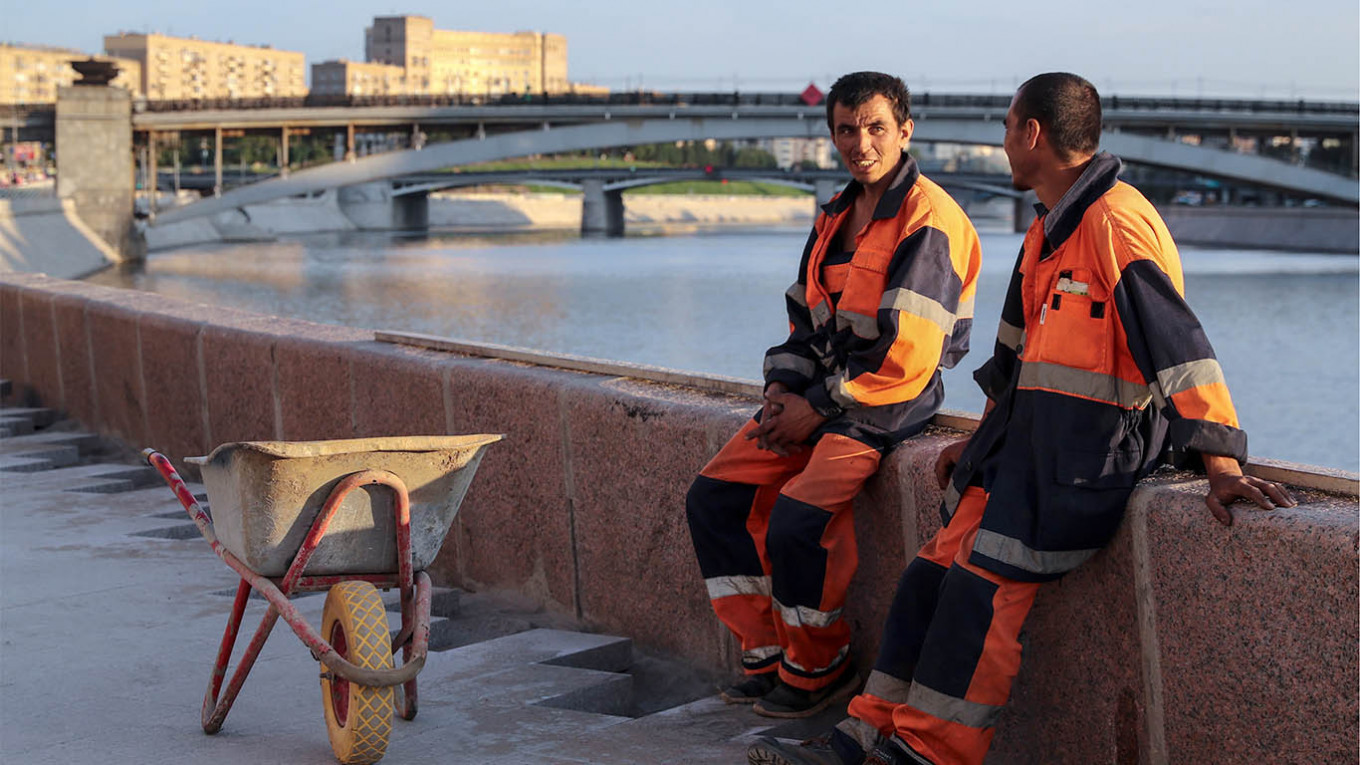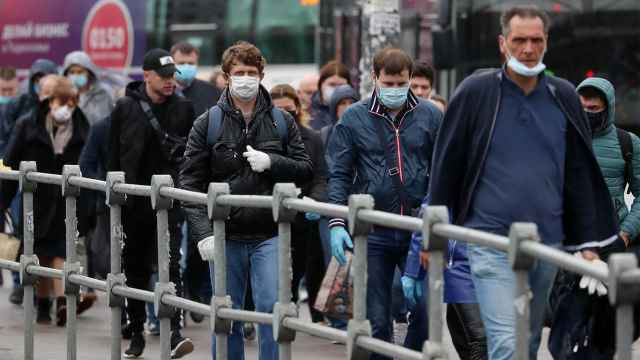Migrant workers were almost twice as likely as Russians to lose their jobs during the coronavirus pandemic, new research has found.
Some 40% of Central Asian migrant workers in Russia reported that they were permanently laid off during the quarantine period, according to a survey conducted by the Russian Presidential Academy of National Economy and Public Administration (Ranepa), while 23% of Russians said the same.
Adding those who kept their jobs, but were put on unpaid leave during Russia’s non-working period — from late March until mid-May — a total of 75% of Central Asian migrants were not working at the height of the pandemic, compared to 48% of Russians.
Amid widespread job losses and the cancellation of most international flights, migrants took to waiting at airports for the chance to get a ticket on a special repatriation flight, or queueing outside embassies in central Moscow for help in finding a way back home.
The survey also revealed that “migrant workers were more aware of the danger of the coronavirus than locals,” and more likely to agree with the government’s policies to contain the spread, despite the high number of job losses.
The findings dispel the myth that migrants took the virus less seriously than Russians, Ranepa researcher Evgeniy Varshavyer said, referring to a narrative which took hold earlier in the crisis.
Migrant workers were also more likely to seek medical help if they thought they had Covid-19 symptoms — 75% called a doctor, compared to 55% of Russians — and more strongly disagreed with the notion that the coronavirus was no more deadly than a typical winter flu.
A Message from The Moscow Times:
Dear readers,
We are facing unprecedented challenges. Russia's Prosecutor General's Office has designated The Moscow Times as an "undesirable" organization, criminalizing our work and putting our staff at risk of prosecution. This follows our earlier unjust labeling as a "foreign agent."
These actions are direct attempts to silence independent journalism in Russia. The authorities claim our work "discredits the decisions of the Russian leadership." We see things differently: we strive to provide accurate, unbiased reporting on Russia.
We, the journalists of The Moscow Times, refuse to be silenced. But to continue our work, we need your help.
Your support, no matter how small, makes a world of difference. If you can, please support us monthly starting from just $2. It's quick to set up, and every contribution makes a significant impact.
By supporting The Moscow Times, you're defending open, independent journalism in the face of repression. Thank you for standing with us.
Remind me later.






